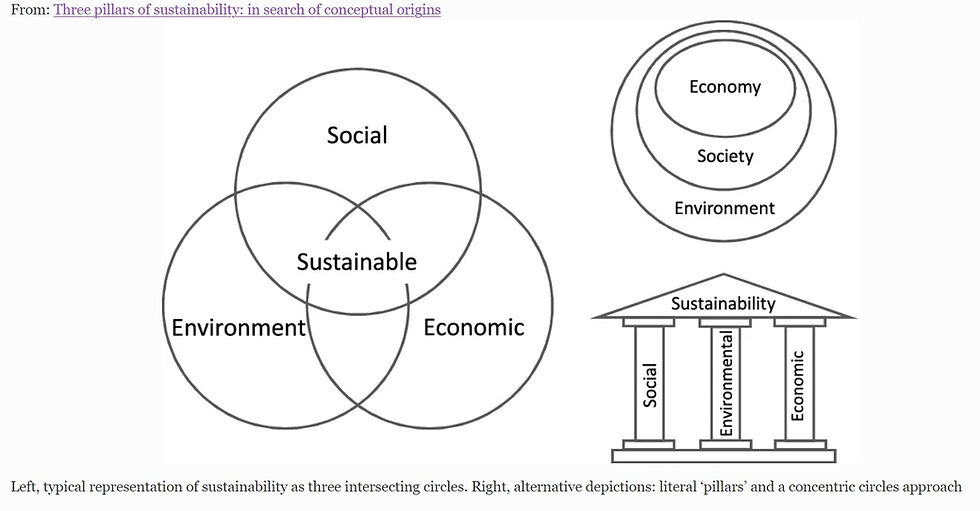The Dialectics of Socio-Ecological Sustainability
- Peter Critchley
- Jan 23, 2022
- 2 min read

Abstract conceptions of sustainability always look reasonable on paper. The test is how these translate into the field of practical reason in terms of motivations, interests, stakes, and ideals. Environmentalists are forcing governments and people to choose between a lesser social necessity – a short-term social survival that is implicated in long-term ecological destruction – and a greater ecological necessity. The ‘rational’ choice is to choose survival – but which survival, if the two are established on contradictory terms? Human beings live in there here and now, subject to the immediacy of social existence. They, and any governments seeking electoral popularity and democratic legitimacy, will choose social survival over against survival in any long-run that is always in the future. That future will, one day, come of course. But it is idle to force the choice in these terms. People will not sacrifice their existence in the present so that others can live in the future. Jesus Christ may do some such thing. But we live in an age trying to force religious conclusions out of irreligious premises.
The cost of living ‘perfect storm’ is not just looming; it has landed. It is idle (and worse) to demand that people put aside their present societal demands in favour of long-range ecological demands. As rational as long-term survival is, the demand of self-sacrifice in the sort-term is irrational – and self-destructive – within prevailing social relations. We live within a social and well as a natural necessity: people have little space for sacrifice. Keep citing ‘climate facts’ and demanding ‘change’ and ‘action’ on the part of people, and the demands will be ignored. It’s not that they are not heard, it is that they cannot be acted upon. This is nothing to do with ignorance, stupidity, and selfishness. Human beings live in there ‘here and now,’ not in the future – and they live within the confines of a socio-economic necessity. Do nothing to address the way that social relations are arranged and you are effectively doing nothing. Climate change is not the prime problem, it is the physical manifestation of a problem that lies within social relations. To go to climate facts and demand ‘action’ from ‘government’ is to get the relation entirely the wrong way round, making necessity available to government in order to justify a climate regime of coercion, control, and compliance. And it will do NOTHING to transform the fundamental socio-economic drivers of environmental crisis. There is much more to this issue than bad energy.


